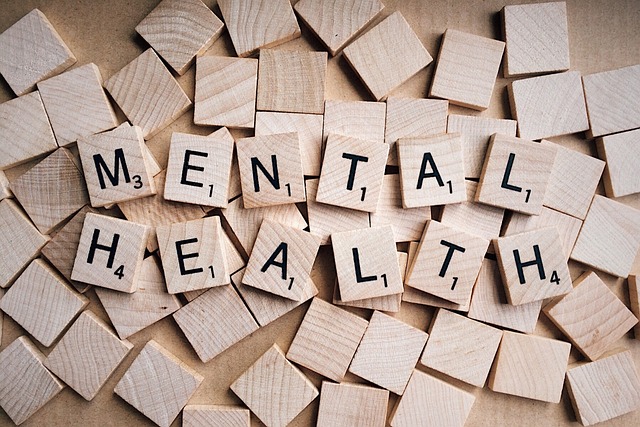Mental health crisis hotlines in Colorado Springs provide 24/7 support for individuals experiencing emotional distress, drug abuse, and co-occurring disorders. Trained professionals offer confidential guidance, practical tools, and connections to specialized therapy like Colorado Springs Drug Abuse-Substance Abuse Therapy. These services reduce stigma, promote holistic well-being, and facilitate access to local resources, empowering individuals to overcome challenges through evidence-based practices and community support.
“In times of mental health crisis, immediate and reliable support can be a lifesaver. This article explores the vital role played by dedicated hotline services, focusing on Colorado Springs Drug Abuse-Substance Abuse Therapy as a prominent example. We delve into understanding these hotlines, their access points, and the post-call care that ensures continued healing.
Learn how to recognize when help is needed and discover the confidentiality and anonymity safeguards in place. By the end, you’ll understand why these services are indispensable resources for those facing mental health challenges.”
- Understanding Mental Health Crisis Hotlines
- The Role of Colorado Springs Drug Abuse-Substance Abuse Therapy
- Accessing Support: How to Reach the Hotline
- Confidentiality and Anonymity: Ensuring Privacy
- Post-Call Follow-Up and Resources for Continued Healing
Understanding Mental Health Crisis Hotlines

Mental Health Crisis hotlines are vital resources designed to offer immediate support and guidance during intense emotional distress or mental health crises. These services provide a safe, confidential space for individuals experiencing anxiety, depression, suicidal ideation, or any other mental health emergency. In Colorado Springs, where drug abuse and substance abuse therapy are prevalent issues, crisis hotline support plays a crucial role in addressing these concerns alongside fostering positive thinking.
Understanding the urgency of the situation, trained professionals offer not only emotional support but also practical guidance on managing symptoms, accessing local resources, and facilitating connections to appropriate care. Moreover, these hotlines contribute significantly to mental illness stigma reduction efforts by promoting awareness, empathy, and a culture of care. They serve as an initial point of contact, conducting risk assessments for mental health professionals, and helping individuals navigate their way towards recovery and well-being.
The Role of Colorado Springs Drug Abuse-Substance Abuse Therapy

Colorado Springs Drug Abuse-Substance Abuse Therapy plays a pivotal role in addressing mental health crises within the community. This specialized service offers crucial support for individuals grappling with addiction and co-occurring mental health disorders. By integrating evidence-based treatments, such as cognitive behavioral therapy and motivational interviewing, therapists facilitate self-awareness exercises that empower clients to manage their conditions effectively.
Through personalized crisis intervention guidance, the program equips participants with the tools necessary to navigate challenging situations and maintain stability. Additionally, it emphasizes the importance of Self-Care Routine Development for Better Mental Health, encouraging clients to prioritize holistic well-being. This comprehensive approach not only treats drug abuse but also fosters resilience, enhancing individuals’ ability to cope with life’s stressors and promoting long-term mental health recovery.
Accessing Support: How to Reach the Hotline

Reaching out for help is a courageous first step towards recovery. If you or someone close to you is experiencing a mental health crisis, Colorado Springs offers dedicated support through various hotline services. These hotlines are accessible 24/7, ensuring immediate assistance whenever needed. Trained professionals answer calls and provide guidance, offering a safe space to discuss concerns without judgment.
For those seeking assistance with substance abuse or struggling with mental health challenges, the Mind Over Matter Principles can be a powerful tool. Public Awareness Campaigns Development has played a significant role in educating communities about these services. By dialing the crisis hotline, individuals can connect with experts who will assess their situation and direct them to suitable resources, whether it’s local therapy options, support groups, or emergency services. This immediate access to mental health care is invaluable and can make all the difference in managing crises effectively.
Confidentiality and Anonymity: Ensuring Privacy

When reaching out to a mental health crisis hotline, individuals often prioritize their privacy and wish to keep their conversations confidential. This is especially true for those dealing with sensitive issues like substance abuse in Colorado Springs. The guarantee of confidentiality and anonymity plays a pivotal role in fostering trust between support services and callers. It allows people to openly discuss their struggles without fear of judgment or repercussions.
Hotlines designed for crisis intervention guidance, such as those offering Colorado Springs drug abuse-substance abuse therapy, are structured to uphold the highest standards of privacy. Trained professionals understand the importance of non-disclosure agreements and utilize secure communication channels to ensure that sensitive information remains protected. This environment encourages honest conversations centered around Mind Over Matter principles, promoting healing and recovery.
Post-Call Follow-Up and Resources for Continued Healing

After an initial call to a mental health crisis hotline, effective post-call follow-up is crucial for ensuring individuals receive ongoing support and resources for their continued healing journey. This process involves offering personalized guidance tailored to each caller’s unique needs, whether they’re dealing with anxiety, depression, substance abuse, or other mental health challenges like Colorado Springs drug abuse.
Hotline operators can facilitate connections to local therapy services, support groups, and programs focused on inner strength development and mood management. Additionally, providing educational materials and referrals to relevant organizations involved in mental health policy analysis and advocacy empowers individuals to take proactive steps toward long-term recovery. Such comprehensive follow-up not only addresses immediate concerns but also fosters a sense of community and encourages ongoing engagement with mental wellness resources.
Mental health crisis hotline support services, such as those offered by Colorado Springs Drug Abuse-Substance Abuse Therapy, play a vital role in ensuring individuals facing mental health crises receive immediate and confidential assistance. By providing accessible resources and maintaining strict privacy, these hotlines foster a safe space for those in need. Post-call follow-up and continued healing resources further emphasize the commitment to long-term well-being. Whether you’re seeking help for yourself or someone else, understanding how to access these services is a crucial step towards navigating and overcoming mental health challenges.














